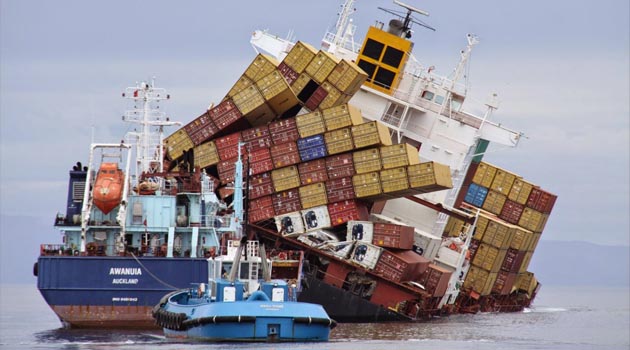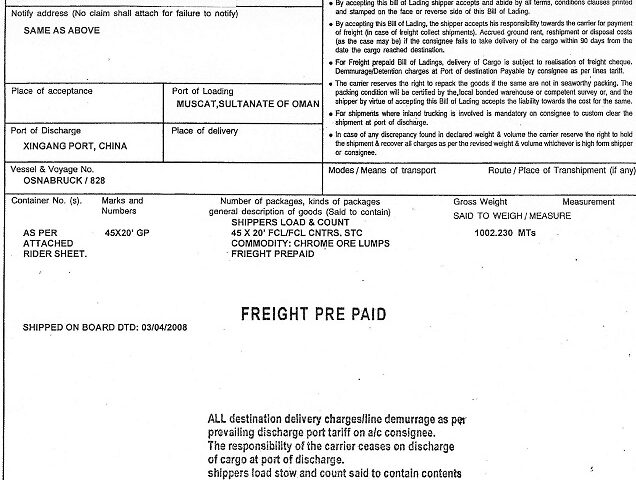Clause in a bill of lading or charter- party which stipulates that, in the event of
a collision between two ships where both are at fault, the owners of the cargo
must indemnify the carrying ship against any amount paid by the carrying ship
to the non- carrying ship for damage to that cargo. This clause arises because,
under American law, a cargo owner is not able to make any recovery from
the carrier for damage resulting from negligent navigation but may instead
sue the non- carrying ship which, in turn, seeks recovery from the carrying
ship in proportion to its fault. This would render a carrier indirectly liable for
a loss for which he is not directly liable to the cargo owner. The clause has,
however, been held to be invalid in the American courts when incorporated
into a contract with a common carrier.
Tag: What is paramount clause?
what is the meaning Bill of lading – common clauses in maritime law and international law
Most bills of lading are printed on both sides. On the face (front) are boxes
or spaces into which are entered all the information necessary to identify the
particular cargo, the journey, the names and addresses of cargo interests and,
possibly, other details, such as freight.


